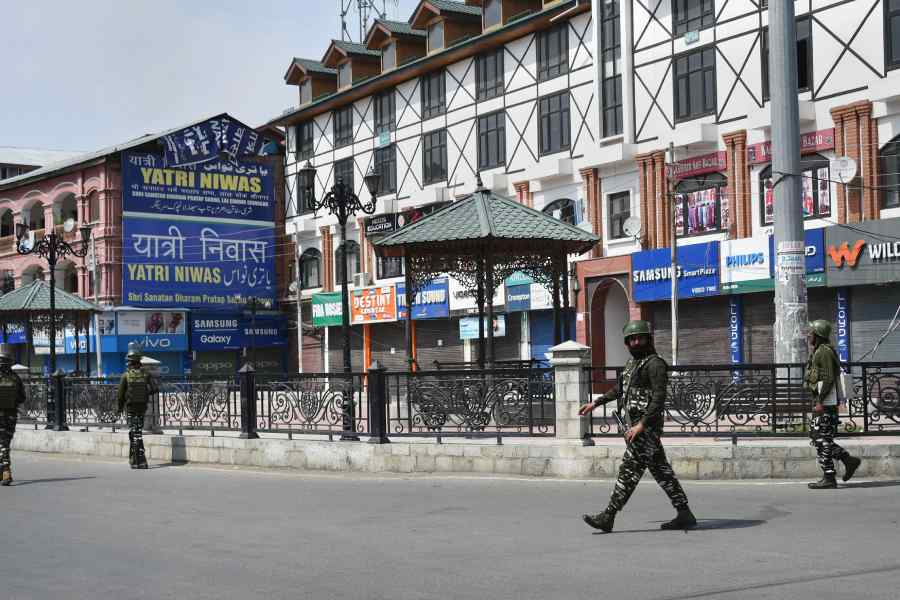Jammu and Kashmir almost lost the last vestige of democracy on Tuesday after the tenure of nearly 28,000 representatives in panchayats and block development councils (BDCs) came to an end.
The only people’s representatives that remain in office are a few dozen members in 20 district development councils —the third tier of the panchayat raj system, whose term ends in 2026 — and the five Lok Sabha MPs.
The BJP-led government at the Centre has not yet given the go-ahead for Assembly elections in Jammu and Kashmir, which are due since 2018. In the absence of an elected Assembly, municipalities and panchayats were the only democratic space left in Jammu and Kashmir.
The term of the municipalities ended last year. On Tuesday, the five-year term of the panchayats, constituted on January 10, 2019, ended.
“Two of three tiers of panchayati raj system — panchayats and block development councils — ceased to exist on Tuesday. However, the third tier at the district level — district development councils — will continue to function till 2026,” Srinagar district development council chairman Aftab Malik told The Telegraph.
“We (all three tiers) never enjoyed any real powers but the (semblance of the) grassroots democracy too is over,” Malik added.
Malik claimed the only powers they had were in the utilisation of funds but they had a limited role in that too.
“We have to submit plans at the beginning of the financial year and the government officers would approve and spend it. We had no funds to spend independently for even small works,” he said.
“We would expect their election soon but in the absence of panchayats and BDCs, DDCs should have a role in planning and execution of funds.”
The Centre’s main argument over the years to deny Assembly polls in Jammu and Kashmir had been that it was holding municipal and panchayat elections here.
According to an official, the term of 310 BDCs actually ends in October this year but the Panchayati Raj Act states their term is co-terminus with panchayats.
Sources said all powers and duties of the grassroots bodies might be exercised by administrators appointed by the UT administration. The Jammu and Kashmir administration recently approved an amendment in the Panchayati Raj Act providing reservation to the OBCs — which did not exist before.
The election to panchayats and BDCs will now be possible only after seats are reserved for the OBCs and the annual voter revision for panchayats is completed.An official spokesman said the state election commission has notified the dates for the updation of the Panchayat Electoral Roll 2024 in the UT of Jammu and Kashmir. The process will be completed by February 26 but no dates for elections have been announced.
Jammu and Kashmir’s major political parties have long been protesting over reports that the Centre has no plans to hold even local body elections here.
The Union Territory’s election body has not formally reacted to these reports — which attribute the likely postponement to the local BJP’s reluctance to face any election before the 2024 Lok Sabha polls.
Former chief minister Mehbooba Mufti recently said the BJP has sensed defeat, allegedly the reason for it delaying panchayat and municipal polls here. Kashmir’s major political parties had boycotted the last local body polls held in November 2018 to protest the anticipated central government plans to scrap the state’s special status.
The BJP, which had no presence in large parts of Jammu and Kashmir, took advantage of their absence and won many seats, uncontested or with minimal participation because of a boycott.










